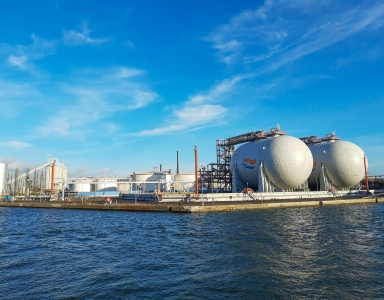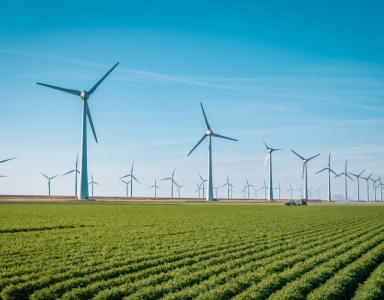New funding opportunities: accelerating CCUS Technologies
Positive funding news! An additional € 4 million has been made available for CCUS infrastructure in the Netherlands. The second ACT call is interesting for international consortia for collaborative projects that contribute to the global climate goals of Paris. France and the USA have joined the ACT programme to combat global warming. Since the introduction of ACT in 2016, the programme has become more influential.
In the beginning of June, the new ACT call was published to combat global warming. This call is a great funding opportunity for organisations that have a unique idea for developing CCUS technologies.
Scope ACT call
Projects should facilitate the emergence of CO2 capture, transport, utilisation and storage (CCUS) by accelerating and maturing technology through targeted financing of innovation and research activities. The call addresses technological, environmental, social and economic challenges required to accelerate CCUS.
The intention is that new projects funded through the new ACT Call will make a significant contribution to establish CCUS as an international climate change mitigation tool. The call does not include specific targets for Technology Readiness Level (TRL) , but large projects should aim for higher TRL levels and all projects should aim to advance the TRL as a result of the project.
Budget ACT Call 2018
The budget that is available for this call from each funding agency is shown in the table below. Each national funding body will provide funding for national entities only. For example, in a project involving Germany, the Netherlands and UK, Germany will fund the German based organisations, the Netherlands will fund the Dutch organisations and so on.
As of 2018 the USA and France have decided to join the call resulting in a total of eleven countries: France, Germany, Greece, the Netherlands, Norway, Romania, Spain, Switzerland, Turkey, United Kingdom, and USA.
| Participating country | Funding organisation | Available budget (€ million) |
| France (p.13) | The French Agency for the Environment and Energy Management (ADEME) | 0.5 |
| Germany (p.14) | Forschungszentrum Jülich GmbH, Projektträger Jülich (FZJ/PtJ) | 1-6 |
| Greece (p.15) | General Secretariat for Research and Technology (GSRT) | 1.5 |
| The Netherlands (p.18) | Rijksdienst voor Ondernemend Nederland (RVO) | 4 |
| Norway (p.20) | The Research Council of Norway (RCN) and Gassnova SF (GN) | 3-6 |
| Romania (p.22) | Executive Agency for Higher Education, Research and Innovation Funding (UEFISCDI) | 1 |
| Spain (p.23) | Ministry of Economy, Industry and Competitiveness – State Research Agency (MINECO-AEI) | 0.45 |
| Switzerland (p.26) | Swiss Federal Department for the Environment, Transport, Energy and Communications (DETEC) | 1 |
| Turkey (p.28) | The Scientific and Technological Research Council of Turkey (TUBITAK) | 0.5 |
| United Kingdom (p.29) | Department for Business, Energy and Industrial Strategy (BEIS) (indicative at current exchange rate €7.4 million) | 6.5 (£ million) |
| United States (p.31) | Department of Energy (DoE)
(indicative at current exchange rate €1.7 million) |
2 (US $ million) |
| Total | 22 – 30 |
The available budget will be split into two separate areas:
- Type A: approximately 70% of the budget will be available for large transnational projects (> € 3 million).
- Type B: approximately 30% of the budget will be available for smaller transnational research and innovation projects with a maximum of € 3 million per project.
Eligible consortia ACT call
Each project proposal must be submitted by a project consortium consisting of at least three eligible applicants from at least three ACT participating countries. Proposals for large projects to be submitted by consortia comprising applicants from at least 4 partners. No partner may represent more than 70% of the activity (in terms of person months) in the project. Applications can consist of consortia with partners from universities, companies, industry organisations, local/regional governments, research organisations and NGOs. These partners can come from several positions and disciplines within research and development systems (i.e. basic research, applied research, innovation, business etc.).
Interested in applying?
The ACT call is a two-stage process consisting of a pre-proposal and a full proposal. The deadline for submission of stage 1(pre-proposal) is 12 September 2018 at 13:00 CEST. By or on 30 November 2018 applicants that are successful in Stage 1 will be invited to enter Stage 2. The deadline for submission of stage 2 (full proposal) is 1 March 2019 at 13:00 CET. The targeted start date for projects is 1 September 2019. Application will be ranged based on three criteria: Excellence, Impact and Quality. The criteria will be weighted equally. Each individual criteria can be awarded with 5 points (treshold of 3) and half marks will be used for scoring. The overall threshold is 10 points.
For over twenty years, Hezelburcht has provided grant support to assist our clients in achieving their strategic, financial and innovative ambitions. Our team of grant experts will be pleased to advise and inform you about the funding possibilities.
Please do not hesitate to contact us for more information!


